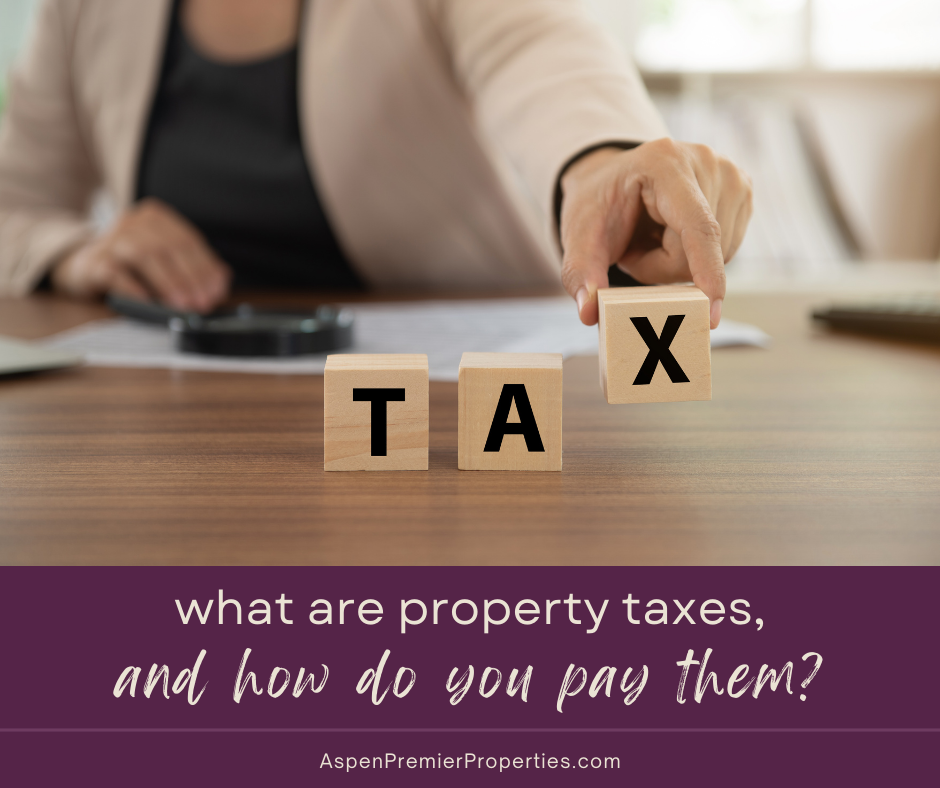Property taxes: two words that can stir up a myriad of emotions for homeowners. While they might seem complex, understanding property taxes is crucial for any Colorado resident. Let’s demystify what they are, how they’re calculated, and the process of paying them in the Centennial State.
What Are Property Taxes, and How Do You Pay Them in Colorado?
Property taxes are a significant aspect of homeownership in Colorado. This guide covers:
- The basics of property taxes
- How they’re calculated in Colorado
- The importance of property assessments
- Payment options and deadlines
- Potential tax breaks and exemptions
Here’s a closer look at each.
The Basics of Property Taxes
At their core, property taxes are levies imposed on property owners, based on the value of their property. These taxes are used to fund essential local services, such as schools, roads, and emergency services.
How They’re Calculated in Colorado
Colorado’s property tax formula is unique. It involves the property’s actual value and the assessment rate. The actual value is determined by the county assessor, while the state sets the assessment rate. The product of these two gives the assessed value. Multiply this by the local mill levy, and you get your property tax.
The Importance of Property Assessments
Every two years, county assessors in Colorado evaluate properties to determine their market value. This process involves analyzing recent sales of similar properties, replacement costs, and potential rental income.
Payment Options and Deadlines
In Colorado, property taxes can be paid in two equal installments or in one full payment. The first installment is due at the end of February, and the second at the start of June. If you opt for a single payment, it’s due at the end of April.
Potential Tax Breaks and Exemptions
Colorado offers several tax breaks for property owners. The most notable is the Senior Property Tax Exemption, available for residents over 65 who’ve lived in their homes for over ten years. There’s also a Disabled Veteran Exemption for qualified veterans.
FAQ About Property Taxes in Colorado
Here are some frequently asked questions about property taxes in Colorado. If you don’t see the answers you’re looking for here, please call our office. We’re here to help.
Can I Contest My Property’s Assessed Value?
Yes, if you disagree with the county assessor’s valuation, you can appeal it. The process and deadlines vary by county, so it’s essential to check local guidelines.
What Happens If I Don’t Pay My Property Taxes on Time?
Late payments can result in interest charges. If taxes remain unpaid, the county can place a lien on the property, which might lead to a tax sale if not addressed.
Are There Any Programs to Help With Property Tax Payments?
Yes, Colorado has a Property Tax/Rent/Heat Credit rebate, often referred to as the “PTC Rebate,” for low-income seniors and disabled individuals.
How Are Property Taxes Used in My Community?
Property taxes primarily fund local services. This includes schools, roads, parks, libraries, and emergency services.
Understanding and managing property taxes is an integral part of homeownership in Colorado. By staying informed and proactive, you can navigate this aspect of property ownership with confidence and ease.
Are You Selling or Buying a Home in Aspen?
If you’re ready to sell your home in Aspen, Woody Creek, Basalt, Carbondale or Snowmass, we may be able to help you.
Get in touch with us right now to find out how much your home is worth – and discover how we’ll be able to help you sell it quickly and for top dollar.
If you’re also looking for a home for sale in Aspen or a nearby community, check out our listings by price in the table below.
Aspen Homes for Sale by Price
| $200k to $300k | $300k to $400k | $400k to $500k |
| $500k to $600k | $600k to $700k | $700k to $800k |
| $800k to $900k | $900k to $1 million | Over $1 million |






























